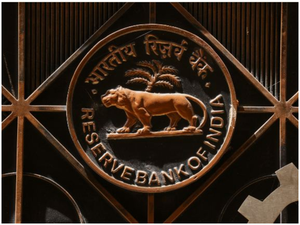
Mumbai, Feb 20 (IANS) RBI economists, in a report released on Tuesday, rejected the IMF view that India’s debt-GDP ratio has the potential of shooting past 100 per cent if historical shocks materialise and hence the country needs to go cut government expenditure.
In an article in the RBI bulletin, the economists including RBI Deputy Governor Michael Patra said: “Our simulations reveal that the general government debt-GDP ratio swerves below the projected path set out by the IMF in its latest Article IV consultation report for India.”
With recalibration of government expenditure, the general government debt-GDP ratio is projected to decline to 73.4 per cent by 2030-31, around 5 percentage points lower than the IMF’s projected trajectory of 78.2 per cent, according to the article titled ‘The Shape of Growth Compatible Fiscal Consolidation’.
This is noteworthy as the debt-GDP ratio is projected to rise from 112.1 per cent in 2023 to 116.3 per cent in 2028 for advanced economies and from 68.3 per cent to 78.1 per cent for emerging and middle-income countries.
“It is in this context that we reject the IMF’s contention that if historical shocks materialise, India’s general government debt would exceed 100 per cent of GDP in the medium-term and hence further fiscal tightening is needed,” the RBI economists observe.
Empirical findings show that medium-term complementarities between judicious fiscal consolidation and growth outweigh the short-run costs. Spending on social and physical infrastructure, climate mitigation, digitalisation and skilling the labour force can yield long-lasting growth dividends, the article points out.
“Using a dynamic stochastic general equilibrium model, we find that if government expenditure is directed towards the above-mentioned segments, the debt-GDP ratio of the general government can decline substantially to 73.4 per cent of GDP by 2030-31,” the article reads.
The article also points out that the Interim Budget for 2024-25 places the gross fiscal deficit of the Union government at 5.1 per cent of GDP in 2024-25, in line with the target of 4.5 per cent of GDP by 2025-26.
“The impetus provided to capital expenditure in the post-pandemic period has been sustained by increasing its share to¬ 3.4 per cent of GDP,” it added.
–IANS
sps/dan
Disclaimer
The information contained in this website is for general information purposes only. The information is provided by TodayIndia.news and while we endeavour to keep the information up to date and correct, we make no representations or warranties of any kind, express or implied, about the completeness, accuracy, reliability, suitability or availability with respect to the website or the information, products, services, or related graphics contained on the website for any purpose. Any reliance you place on such information is therefore strictly at your own risk.
In no event will we be liable for any loss or damage including without limitation, indirect or consequential loss or damage, or any loss or damage whatsoever arising from loss of data or profits arising out of, or in connection with, the use of this website.
Through this website you are able to link to other websites which are not under the control of TodayIndia.news We have no control over the nature, content and availability of those sites. The inclusion of any links does not necessarily imply a recommendation or endorse the views expressed within them.
Every effort is made to keep the website up and running smoothly. However, TodayIndia.news takes no responsibility for, and will not be liable for, the website being temporarily unavailable due to technical issues beyond our control.
For any legal details or query please visit original source link given with news or click on Go to Source.
Our translation service aims to offer the most accurate translation possible and we rarely experience any issues with news post. However, as the translation is carried out by third part tool there is a possibility for error to cause the occasional inaccuracy. We therefore require you to accept this disclaimer before confirming any translation news with us.
If you are not willing to accept this disclaimer then we recommend reading news post in its original language.













